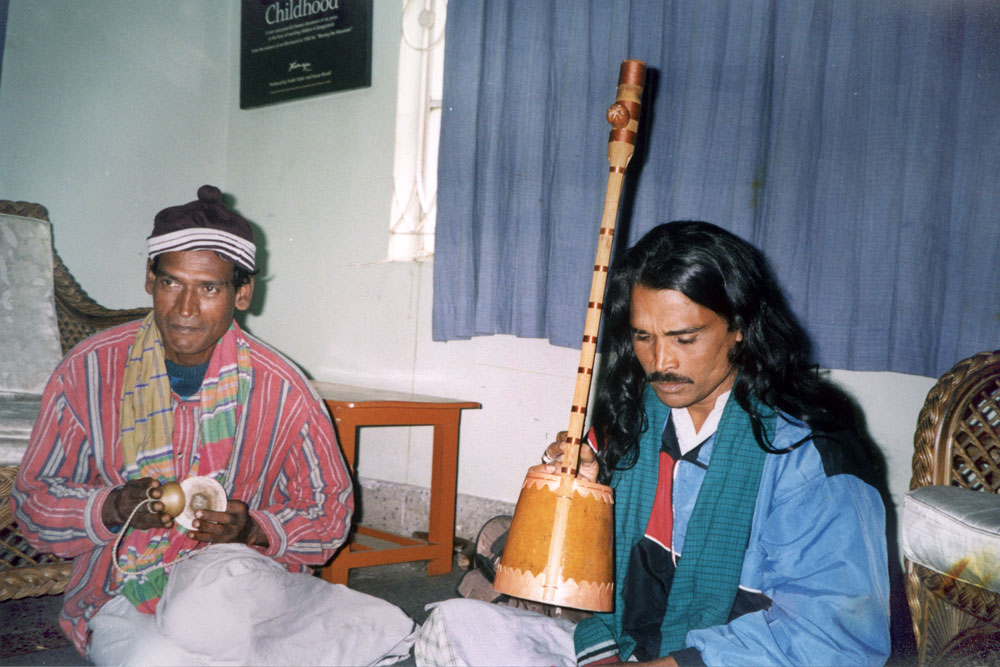Moushumi Bhowmik
Grant Period: Over two years
The earlier grant to Moushumi Bhowmik has yielded a rich sound archive of biraha songs which will be housed in multiple locations––the Archive and Research Centre for Ethnomusicology (ARCE), Gurgaon, the ‘World and Traditional Music’ section of the British Library, London, and possibly the Berlin Ethnography Museum–– and be available to researchers and those interested in music all over the world. However, as a musician and researcher, Moushumi felt that there was scope for envisioning dissemination beyond the conventional notion of archival outreach. While thinking of how she could further disseminate the archive, she was confronted with a set of perplexing questions: “Who am I to have recorded this material? Who am I to decide how it should be archived? Who am I now to go and tell them what their music is all about and how it compares with other kinds of music and so on?” “Perhaps the flaw,” she observes, “is inherent in the role of the collector, the obvious outsider whose purpose for recording and dissemination can easily be questioned
However, being a musician herself, Moushumi’s relationship with the musicians she has recorded has been unique. It is from these relationships of give and take that she forged in the field that her innovative idea of dissemination has arisen. “The dissemination project will allow us to take back the songs to those who gave them to us,” she observes. The primary idea, therefore, is to return to the field with not just the songs of the place but with other songs too. While the housing of the sound archive in multiple locations will address a larger public, this dissemination idea emphasises moving from one place to another with a travelling archive, and sharing, teaching and learning at the same time. Moushumi and her recordist-collaborator Sukanta Majumdar will travel not just with the recordings but also with footage and photographs that have resulted from her research and documentation and relevant books, albums and films that she has collected. The travelling archive will be shaped and reshaped according to the needs of a place.
Moushumi and Sukanta will set up camps in ten places across West Bengal, Assam and Bangladesh. They will stay in a certain place for a couple of days or longer, depending on the response to the camp, and share songs from the region and other places, interact with the musicians and discuss Moushumi’s experience of the particular place as a singer-composer-researcher. The interactive sessions will be recorded because she feels that there is the possibility of discovering rare songs and stories in these sessions. Apart from giving back to the field through these camps, Moushumi will make presentations and conduct lecture demonstrations in urban areas across the country. In her presentations for urban audiences, Moushumi will continue to address critical questions concerning the politics of borders and mapping, issues of identity, musicological analyses of forms and genres, the voice of the woman as artiste and notions of gender, the changing face of ‘folk’, and ideas around archiving and recording.
Independent of our support, Moushumi will also be putting together a website on biraha songs during the course of the next two years.




